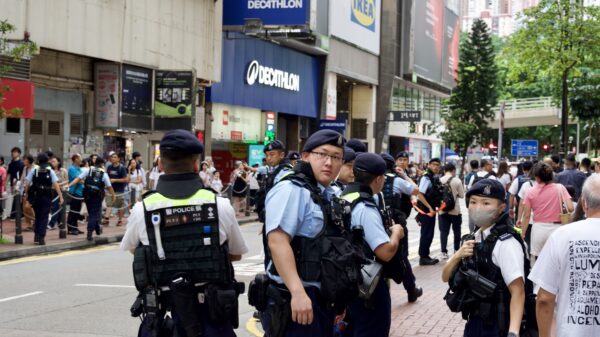Staff writer Au Young Yiu Wai examines the methods Heathrow Airport could adopt to become a more student friendly space.
Amidst the flurry of hurried footsteps and clamouring announcements at Heathrow Airport, one demographic often finds itself overlooked: students. While inadequate seating, overpriced outlets, and winding queues are the universal trifecta of any airport experience, students are hit especially hard by the first two problems. Productivity and prices are the top priorities of almost any student, and the airport setting is no exception.
A Which? survey in 2024 found that the four terminals at Heathrow were rated at a customer score between 55% and 57%, suggesting that Heathrow needs to place a greater focus on the customer experience as a whole. While not sitting at a miserable 32% like Manchester’s Terminal 3, it still has a long way to go to reach the 82% that Liverpool John Lennon Airport achieved. A specific emphasis on enhancing the student travel experience is a future-oriented solution that benefits Heathrow in three ways. It enables Heathrow to better bridge this gap in customer satisfaction, uphold its reputation as a socially responsible entity, and increase its long term revenue.
Among travellers, students constitute a significant demographic, often flying for studies, internships, to visit home, and even for leisure. In particular, international students are likely to fly home at least once a year, and they are no small minority – 29.3% of students in the UK are internationals. The government has also explicitly stated that it “strongly wishes to continue to attract international students to study in the UK”, having set the goal of 600,000 international students annually in the higher education system by 2030. This target was met a decade earlier in 2020/21, significantly ahead of schedule. We can therefore expect that the number of international students will only increase at a rapid rate.
As the main gateway for travel in the UK, facilitating a welcoming and positive experience for students can not only promote accessibility, but also reinforce Heathrow’s status as a socially responsible airport that fosters the development of the next generation. From a commercial perspective, student-friendly measures such as enforcing student discounts would benefit both Heathrow and the stores in the long run – encouraging consumption through discounts would also build customer loyalty for years to come. With students being the next generation of high spenders, this is especially relevant in attaining or maintaining a competitive edge in the market, as they will eventually dictate where expenditure goes.
The question now turns to how such student-friendly policies can be implemented. The primary focus should be in addressing the two main priorities of most students: productivity and prices. Queues are often one of the main airport related complaints, and Heathrow is no exception. The four terminals at Heathrow averaged three out of five stars in queues, and even lower at two out of five in baggage reclaim. The introduction of biometrics can streamline foot traffic, and while Heathrow has already initiated a full-scale rollout of biometrics services since 2019, it is still far from completion. The six-month trial that ran on British Airways in 2022 also suggests that this rollout lacks full optimization, as passengers still need to show their boarding pass at security. Compared with Hong Kong International Airport, which is fully biometric and does not require any documents after the initial Smart Check-in kiosks, this is still a work in progress. Nevertheless, queues are undoubtedly a difficult problem to manage, as evidenced by their universality across airports around the world.
A different aspect that can be improved but still addresses the issue of efficiency and productivity is the inadequate seating. Three out of four terminals were rated at two stars for seating, leaving many travellers standing or having to pay for cafés. Beyond increasing the number of seats, the addition of desks in certain areas would also enable students to work comfortably in the waiting times before a flight, instead of precariously balancing a laptop on one knee crossed over the other. In the same vein, dedicated quiet spaces would facilitate greater productivity, and create a more welcoming environment for those who wish to pursue more quiet and individual activities while waiting. Heathrow can also introduce private pods for some quiet and peace, much like those at Narita Airport in Japan.
Heathrow’s high prices also stand out against the limited student budgets. T2 and T5 were rated at two out of five stars, and T3 and T4 even worse at one out of five. Student discounts can be introduced to combat this problem, as it is within Heathrow’s authority to require that stores offer them. In particular, restaurants and cafés are likely the best places to implement them, as students most frequently patronize food venues. Coffee shops and cafés have always been popular student locations for studying due to their atmosphere, food, and seating. A greater and more diverse range of food options may also be well received, considering the airport is a multicultural hub for travel. The current selection has minimal Asian cuisines and no Middle Eastern nor African cuisines at all, for example.
Enhancing the student experience is a win-win situation for both students and Heathrow. By implementing measures that target the two greatest woes of the student experience – price and productivity – such as biometric technology, improved seating, spatial management, and student discounts, the airport will not only climb higher in customer satisfaction ratings, and fulfil its role in promoting social responsibility, but also strengthen customer loyalty for long term revenue gain.
As the largest airport in the UK, Heathrow has the opportunity to lead by example in creating an exceptional travel experience for students. It doesn’t need to meet the standard – it can set the standard.















